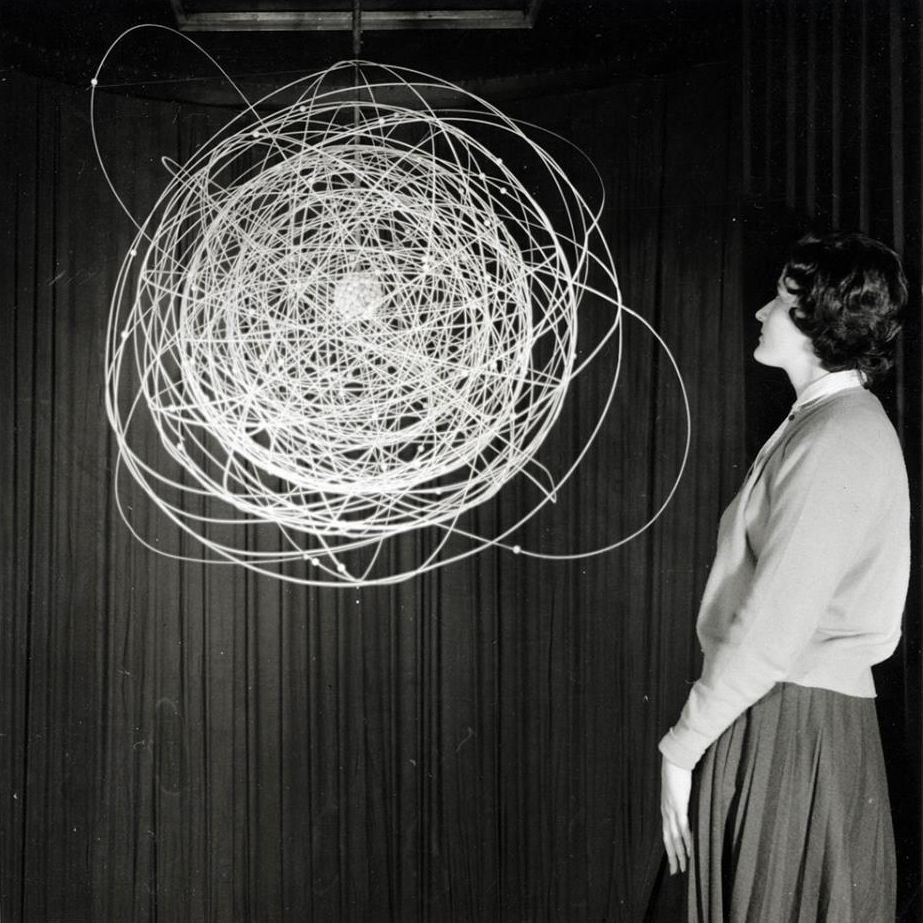by Alexandra Ionescu

Fig. 1 Woman and dense atomic cloud, J.P Wolff, 1950s
Our semester was divided into 11 modules:
1. Land
2. Species
3. Air
4. Science
5. Wilderness
6. Animal
7. Food
8. Energy
9. Water
10. Waste
11. Climate
In total I have found over 200 questions and tried to find patterns among them. I became curious to understand if different authors are asking the same questions, I tried to see if there is any trace of a collective consciousness, and quest.
I made 36 measurements.
(a question = a measurement)
(some texts did not contain any questions)
Do not expect to make any sense. That is because the questions are isolated from their context.
[ ... ]
I am ending with a quote from Michael Serres, “Birth of Physics.”

Hint:
“So, the vers is the verse is vertex is vortex. As verus is “a preposition for questions of place,” the inclination to veer away from the non-position of disorder is the pre-position to aposition, or the stating of a (pro)-position. The vers, the turn-toward-verse, causes Sense to birth itself form the non-sense of noise.”